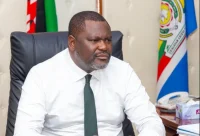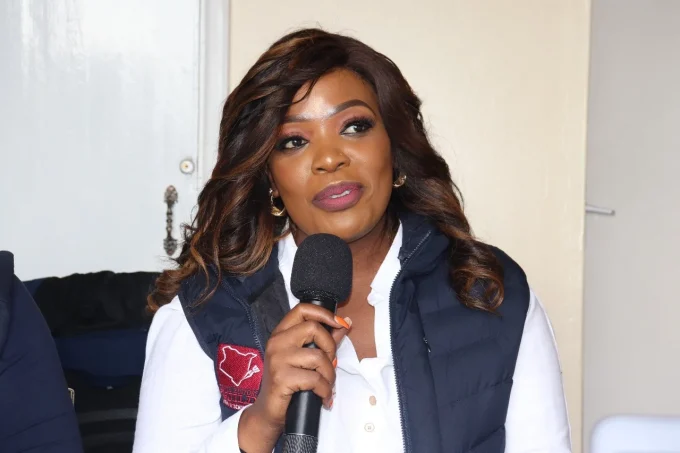[dropcap]T[/dropcap]here is a new fad in town. In recent years, Kenyans seem to have discovered the magic power of media exposure. And, with that discovery, every Kamau, Otieno and Mutisya is praying for the day he will get his 10 minutes of fame. It has become a spectacle to behold.
Nowadays, people are using all manner of gimmicks, tricks and stunts to get that all important exposure through trending. It’s anything goes, from eating “githeri” (boiled mixture of maize and beans) from a polythene paper bag while on the voters queue during August 8th election, to raising placards on the streets in search of jobs.
Media interviews have evolved over the last two decades. In times gone by, particularly before liberalization of the media in the early 1990s, broadcast media was exclusively State owned. Only those who towed the line of the ruling Kanu party, or belonged to the apparatchik, had their day in the sun, especially on the single government owned television.
Voice to divergent views
In fact, television interviews on the Voice of Kenya (VoK) were not only few, but highly predictable in terms of messaging. It was about propagating the social, economic and political status quo. But VoK’s rebranding to the Kenya Broadcasting Corporation in preparation for political liberalization in the late 1980s changed things somewhat. The new outfit was required by law to give a voice to divergent views. But we all know that is easier said than done.
READ: Media role in the election fallout
Anyway, the exponential increase of media houses and subsequent expansion of the democratic space resulted in cut-throat competition. Interestingly, the proliferation of media channels has hardly increased the quality of content. Although there are numerous interviews of personalities across the media spectrum (print, broadcast and electronic), there is very little light emanating from these forums.
It is like a cacophony! Am not saying that many of the interviewees are just noise. But there is a problem either with the way interviewers present issues to them, or the honesty with which they (interviewees) field the questions.
Basically, media houses should restructure this news segment if it is going to bring about the much needed thought leadership in our society. I do not like to constantly compare things, but then how else would we benchmark our performance? For instance, let us take CNN, the self-touted world news leader. It is always a refreshing and enlightening experience watching the experts they interview.
Lately, I have been following CNN’s coverage of Hurricane Irma, which hit the Florida coast in America on Saturday. All through the coverage of the hurricane’s path, they brought in various experts to explain to their viewers what was really happening. The meteorologists were experts in both theory and practice. They explained the whole concept in such a way that you could “see” and “feel” the hurricane.
SEE: Rise of Githeri man and the state of advertising in Kenya
The closest we have witnessed such a devastating weather phenomenon is El Nino. Very few Kenyans, even the educated, can explain El Nino’s cause and effect. This is because the interviews conducted as part of general awareness during such crisis are not structured in a way that they dissect and demystify the issues accordingly.
The problem with interviewing
So, what generally ails interviewing in the Kenyan media? First, interviews in most media houses lack interrogation and depth. This is why interviewees sound the same across the board. The cross-examination of issues is flimsy, with a lot of emphasis placed on presentation and form, rather than substance.
The above is a by-product of the poor interviewing skills of our journalists. Even some of the most popular names on TV have often been criticized for mishandling interviews by bringing their emotions or prejudices into the picture. Their combativeness puts interviewees on the defensive, thus limiting a full debrief of the topic or topics being discussed.
Political interviews are indeed the worst. Some journalists ask questions based on their personal political preferences, inclinations or bias, using dichotomies that leave little or no room for objectivity. Some are interviewers are especially notorious for having heated exchanges with guests in an apparent clash or contest of ideas.
READ: Rise of scandal news and death of investigative reporting
Further, some interviewers are short of even the basics. They have inferior language skills, which is sometimes worsened by mother tongue inflections in their diction. It is not about using the Queen’s English here, but speaking in an eloquent manner that can communicate with people of different linguistic orientations.
As noted earlier, everyone today is a wannabe analyst, or expert in something. This political year has especially had its fair share of “fake” analysts telling us the obvious. But this is not to say that we should have the same people on TV. The media just needs to cast their nets wider and invite people with requisite credentials, even if they have to cater for the expenses of flying them to the city from far flung areas.
Ultimately, the media needs to restructure the concept of interviews to make them more vibrant, educational and engaging. Interviewers should take a back seat and let the issues being discussed come alive. It’s about being a teacher; not a star!












Leave a comment